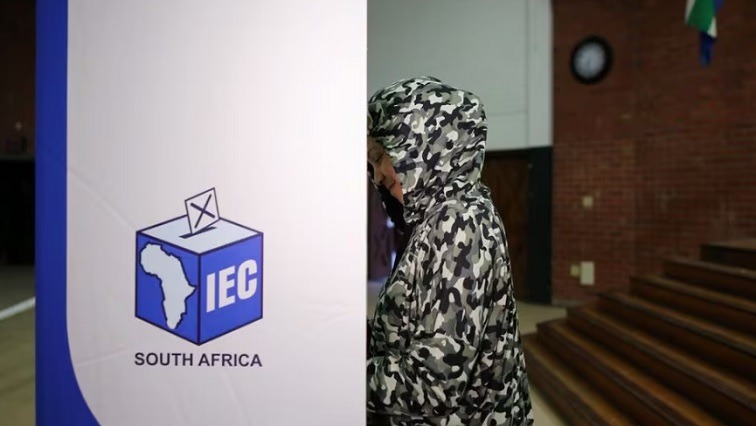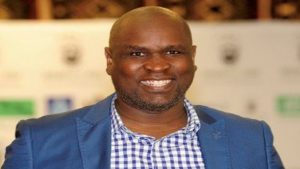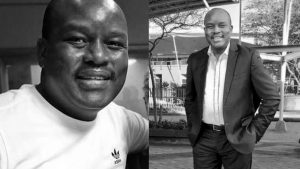Ukhozi FM’s Song of The Year has once again raised furore among listeners and music fans alike. This after Maskandi musician, Khuzani featuring Luve’s Umjolo Lowo ushered the station’s listeners into 2024, despite far much popular songs like iPlan by Dlala Thukzin featuring Sykes, and Mnike by Tyler ICU and Tumelo.za featuring various artists.
While South Africa’s biggest urban radio station, Metro FM, among others, had iPlan as the song of the year and Mnike at number 2, Ukhozi FM as the biggest radio station by listenership also has legitimacy.
While Mnike dominated the airwaves for most part of the year, iPlan had momentum towards the end, and was religiously played in social gatherings during the festive season. However, it was Umjolo Lowo that amassed 993 667 votes from Ukhozi FM’s listeners, while iPlan tallied a mere 90 422 (Mnike was controversially not in the running for song of the year on the station, but that’s a topic for another day).
There is no doubt that Umjolo Lowo is far less popular than not only the two songs I have cited, but many others, that is why it came as a shock to many across the country that it had won the station’s Song of the Year. Which explains why, as per videos circulating on social media and a news report by Sunday World, Khuzani was booed off stage when he attempted to get the crowed to sing to his song.
What South Africans can learn from Ukhozi FM’s listeners, is that your vote is your choice! Ukhozi FM’s listeners did not rely on social media activism. They loaded airtime on their phones and overwhelmingly voted for the song they love, Umjolo Lowo. Those who wished for iPlan to win simply did not vote, instead they tweeted and posted.
This is what the electorate in South Africa can learn. That if they do not register to vote and cast their votes later this year, other South Africans will choose the government, on their behalf. Those who booed Khuzani off stage did not vote their favourite song, and so, others made the choice on their behalf.
South Africa’s voters roll stands at 26.8 million after 568 374 people registered for the first time on the first voter registration weekend held on 18 and 19 November 2023. However, this is still a significant gap from the about 14 million eligible voters that still need to be registered.
Ahead of the 2024 National and Provincial Elections, the Electoral Commission released the dates for the second and last weekend of voter registration. Saturday, February 3, and Sunday, February 4, 2024 will see the opening of the nation’s 23 296 voting locations, allowing prospective voters to register and current voters to check and, if needed, update their registration information.
The phrase ‘If people do not vote, others make the choice for them’ underscores the importance of civic participation in a democratic society. In a democracy, voting is a fundamental right and responsibility that allows citizens to have a say in the selection of their leaders and the direction of their government. When individuals choose not to participate in the electoral process by abstaining from voting, they essentially relinquish their influence over decision-making. In such cases, decisions are made by those who do vote, potentially leading to outcomes that may not truly represent the diverse perspectives within the population. As we have seen with Ukhozi FM’s Song of the Year.
Participation in elections is a way for individuals to express their preferences, support certain policies, and contribute to shaping the future of their community or nation. The idea is that when people engage in the democratic process through voting, they play an active role in determining the course of their society. It’s essential for citizens to be informed about the issues, candidates, and the potential impact of their choices. Encouraging voter turnout helps ensure a more representative and responsive government, reflecting the collective will of the people.
Voter turnout has been declining and majority of the voting population is being disconnected from political processes, as per the previous election trends, and more glaringly, the 2021 local government elections. South Africans have every reason to vote, the country has a number of political, social and economic challenges, such as a deteriorating economy, public sector corruption, high unemployment, poverty, inequality, rolling electricity blackouts and racism; on a positive note, the country has a stable democracy, strong democratic institutions, inherent human rights enshrined on the constitution and social welfare programmes that help the poor. These are all reasons to vote.
It is important for the 14 million South Africans of the voting age to register to vote on the first weekend of February. But registering to vote is one half of the job, the other is waking up on election day to cast a ballot. If these two things do not happen, South Africa may have a political Khuzani featuring Luve and end up with a government that does not represent the will of the people. Let us learn from the listeners of Ukhozi FM and understand that power is in our hands.
May South Africa have peaceful elections and may those elected serve with distinction and utmost humility. Happy New Year, South Africa. See you at the polls.
Vusi Gumbi’s Master’s Dissertation (obtained cum laude) explores the role of symbolism in organized political life as it relates to similarities between political parties. He is a researcher at the Institute for Pan African Thought and Conversation at the University of Johannesburg.
The views expressed are those of the author and are not representative of SABC News in any way.






